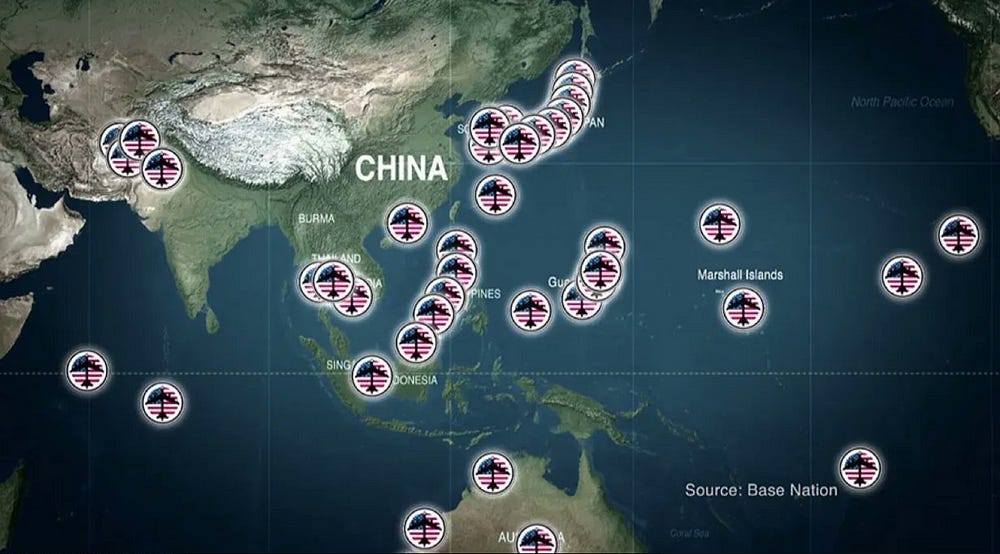The Final Countdown
Thanks to Saint Jimmy (Russian American) for bringing this to our attention...
The Final Countdown
Peak oil is coming fast, and it won't be nice
Energy is the economy, and this is especially true when it comes to fossil fuels — despite the fact that they are responsible for overheating this pale blue orb we call home. All the claims to the contrary, “renewables” are nowhere near taking over their role, nuclear is set on a path towards decline, fusion remains to be a pipe dream, while electrification in general has a serious math problem. Like it or not, this iteration of a global civilization, not unlike its predecessors, is based entirely on a set of finite resources and Nature’s limited ability to absorb its pollutants and keeping up with its demands… and what’s the ruling caste’s response?
During the course of the last weeks and months I reviewed the prospects of alternative energy resources, now allow me to revisit the topic of declining fossil fuel availability and its geopolitical ramifications. While I remain hopeful that we will find low-tech solutions to adopt to the realities of the long descent, I’m less positive when it comes to the political aspects of this immense civilizational challenge. Our ruling elite seems to remain mired in their own propaganda and looks to be wholly unprepared to what’s coming.
Warning. The following might upset readers who are fully onboard with the mainstream narrative of geopolitics. However, if you are open to an alternative explanation of world events (based on geology and physics as opposed to ideology), please read on.
With that out of the way, let’s start our review of peak fossil fuels with Natural Gas. According to the CIA’s World Factbook, at the end of 2020 US reserves stood at 13 trillion cubic meters, while production now nears 100 bcfd (around 1 trillion cubic meters annually). The math is not particularly complex here: should production be able to keep running at this level, US wells would run out on a sad day in 2033 (based on 2020 as a starting point). Not a good prospect.
Of course, natural gas “production” simply cannot stay flat till a drop dead moment. Extraction of every natural resource — gas included — first rises, then peaks and finally falls — a pattern dictated by geology. Something, which can only be delayed by technology: postponing, but also making the fall much steeper than it would otherwise be. And since much of the US shale gas comes as associated gas from fracked oil wells, you can be all but certain, that together with a peak in US oil production natural gas will peak and start to decline as well.
Now, according to the head of Pioneer Natural Resources Co., one of the biggest operators in the Permian Basin (the last shale deposit being able to grow in the recent years), production of oil will peak in five to six years in the US, as the best acreage for drilling and fracking is used up.
The reason, as always: geology on a finite planet. People who are heavily invested in fossil fuels try to sell this as an issue of permits, legislation, or environmentalism, wholly disregarding physical realities. As rich deposits, hot spots and the “best acreage” depletes, however, what remains is hard to drill costly resource and energy intensive to get. We will not run out of oil per se — we will run out of affordable oil. This is why shale drillers are selling of their drilling rigs and equipment: if there is no return to be made in new wells (replacing depleting old wells) then why do it? Peak shale is coming whether agencies, like the EIA, choose to see it or not. As another executive noted:
“The Energy Information Administration put out its Annual Energy Outlook this week, and it forecasts that oil production from the U.S. will be flat for the next 30 years. We should probably inform them of the collapse in shale production we are going to see in under five years.”
Again, this is not a mere fantasy. More and more oil experts (who are otherwise rather optimistic about petroleum production) warn that US shale production is set for a rapid decline. Five to six years is not very far out into the future. It is around 2028–29, two presidential election cycles from now. At max. Let me remind you at this point on the words of Bob McNally, a former adviser to President George W Bush (yes, the same man who gave advice to the same Bush who started ‘Operation Iraqi Freedom’):
“If we end up being more thirsty for oil than the prevailing forecasts assume, then we’ve got big problems. It would be an era of economy-wrecking, geopolitically destabilising, boom and bust swings. That’s when you will wish for more shale.”
Is it any question then, Dear Reader, why the war with China seems to be ‘inevitable’ till 2027…? Forget the bs about “intelligentization” of their forces — it is nothing more than smoke and mirrors. If you ever wondered why the West is so eager to contain the biggest economy of East Asia — importing the most oil after Europe — then look no further than peak US production and a forced return to import dependence.
This is not 2003, however, when “liberating” an oil rich country with plenty of prospects to grow production will do the trick. By 2027 global oil extraction will most probably be on a long slow downward trend already. If one wishes to remain the top petroleum consumer on the planet with a shrinking supply, then one needs to eliminate competition. With European demand destroyed by the combined effects of war, “mysteriously” exploding pipelines, sanctions and high prices, and with the continent committing itself to a permanent slimming diet, the cross hairs move east.
Time is not on the USA’s side though, and China knows that, together with the US military industrial complex. Western weapons manufacturers just had to take a look at what happened to the European metals and chemicals industry, after the Russian gas stopped flowing to see what’s in store for them. Once oil production (and with it natural gas extraction) peaks, then starts to fall, there will be no chance to scale up ship making, metallurgy, explosives manufacturing, or to keep a stable electricity supply up for that matter. How would one produce weapons on an industrial scale without those…? So, when the long descent arrives to theaters in the US, one can safely confer that the world’s biggest military’s war fighting and power projection capabilities will be affected somewhat negatively.
The US has found itself between a rock and a hard place. The rock being a depleted arsenal of rockets, shells, ammunition, artillery, etc. taking 5–7 years to replenish, and the hard place being peak domestic oil and gas production coming in 5 years, on top of a rusting industrial base, which would take 6 years to rebuild at least. The two simply do not add up.
On the other side of the great pond, despite all efforts made at encircling it with military bases and an increasing number of ballistic missiles, it actually makes perfect sense for China to just sit it out. And while at it, forge an alliance with Russia, who still has the biggest gas reserves and a considerable oil export capacity, not to mention a proven military track record. (Again, not based on western mainstream media reports — but who reads those in China anyway?)
Seen from this vantage point, it should be also abundantly clear why the Chinese were so busy striking a Saudi-Iranian deal. A peace deal, between two countries possessing the largest remaining oil and gas reserves on the planet, guaranteeing a stable supply and low prices for at least a decade to come (past peak shale that is).
It is no wonder then, that as tensions between the US and China continue to escalate, the importance of the Middle East for these two superpowers is only growing. If China manages to make the Gulf states its allies, which seems more likely with each passing day, then only massive trade embargoes and an outright economic war (quite possibly turning into a shooting war) is what remains in the US arsenal.
So, why would China rush to fight with the US over Taiwan by whatever date projected on them, when they can use diplomacy and patience to ensure that beyond 2030 the US will neither have it’s own, nor that of the Middle East’s oil and gas supply? They just have to sit back and watch how the West implodes under the combined effects of a declining global oil and gas production, walking hand in hand with ecological disasters (mega-droughts with aquifers running dry, floods and hurricanes)… Then march into the island, undisturbed. The US military will have plenty to do at home, keeping the law and order amidst the ecological, and quite possibly by then economic and political chaos.
This is not to say, that the Sun will never set on these new powers, too, it will just happen to do so a few decades later (10–20 years down the road, I wager). China will also have its own problems back home by the 2030’s already: droughts, desertification, pollution, declining coal production, power shortages and much more… Not to mention the negative effects of a declining global oil production: turning consumers against producers. The former will try everything to suppress internal consumption at their suppliers and reduce competition from other customers to maintain a comfortable flow of oil for themselves.
There are no saints and evil villains, good or bad sides in this game. When it comes to peak oil, and with it peak economic output, then all gloves will be off. The new, multi-polar world order led by these powers will be thus be rather short lived, and when it comes to an end sometime in the 2040's… Well, I don’t want to speculate what happens then, but I have a hunch, that climate chaos and resource decline will not stop on its tracks just because we put a tax on carbon emissions. Floods, droughts, mega-fires will be the theme of those years, and on the top of it all, if history is any guide in these matters, people’s of these nations will all be fighting each other for the last remaining resources on Earth.
Be sure to find a quiet place to live out the last decades of this civilization, and make sure you stock up on pop corn well in advance. A dosimeter (or two) might also come handy.
Until next time,
B
Source: The Honest Sorcerer


Comments
Post a Comment